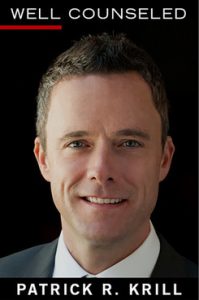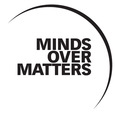In a Year Full of Worry and Division, How to Protect Your Mental Health
Just as you can do things to safeguard yourself from the coronavirus, you can also takes steps to avoid the mental fallout.
March 16, 2020 at 01:30 PM
7 minute read
 Image: Shutterstock.
Image: Shutterstock.
Does 2020 already feel like it's been a long year? If so, the good news is that we're not even a full quarter into it, so there is still ample time to rebound and course correct, to reach the goals you have set for yourself and have some fun and good times along the way.
 Unfortunately, the bad news is that we're not even a full quarter into it, and the curveballs and negativity are comin' in hot and threatening to leave a mark on many. Let's talk about why and how you should duck if you want to preserve your mental health and well-being.
Unfortunately, the bad news is that we're not even a full quarter into it, and the curveballs and negativity are comin' in hot and threatening to leave a mark on many. Let's talk about why and how you should duck if you want to preserve your mental health and well-being.
Beginning with the most recent threat to our collective sanity—coronavirus—it's important to recognize that anxiety and panic rarely lead to good decision-making or improved circumstances, but frequently lead to fatigue, emotional exhaustion and retrospectively disproportionate despair and energy expenditure.
Step one in your 2020 self-care plan is, therefore, to pause and recognize that you may find yourself being herded over a psychological cliff by what seems like an airborne germ of worry, worsened by hourly dispersal through push notifications, social media posts and news headlines. To some degree, you probably are.
Just as you can do things to protect yourself from the virus itself (it's probably time to wash your hands soon), you can also protect yourself from the mental fallout. Those include limiting your exposure to emotionally disruptive cues, just as you would want to limit your exposure to the illness itself.
Am I suggesting you bury your head in the sand and ignore what you need to know? Of course not, but it is far from a binary choice between willful ignorance and reflexive consumption of every single detail and development. Unless you're an epidemiologist or public health official, chances are you don't need a real-time play-by-play.
As with most anxiety-inducing subjects, the big-picture awareness will probably suffice. As such, limiting social media and disabling worry-inducing notifications is a good idea. According to the CDC's guidance for managing anxiety and stress during the coronavirus pandemic, you should "take breaks from watching, reading, or listening to news stories, including social media."
Beyond fear, worry and anxiety, however, the other blow to our mental health that coronavirus threatens to land is an increasing sense of isolation and loneliness. As events and get-togethers are canceled, trips are postponed and remote working and "social distancing" increase, we'll be getting less of something human beings are hard-wired to need—a sense of connection.
Lawyers already experience high levels of isolation and loneliness, both of which undermine physical and mental health and increase the risk of substance misuse and addiction. Anything that stands to increase those feelings of disconnection amounts to its own problem that needs to be guarded against.
Fighting isolation and loneliness amid a broad public health concern might seem more challenging, but the best way to do it is generally the same as in the absence of an outbreak: with intention and commitment. Schedule time to check in (by phone or video) with family and friends and keep the appointment. Even if you're tired, make the calls and give yourself permission to be fully present for the conversations. In a time of increased stress, a sense of connection can be transformative and, for some, lifesaving.
Along with loneliness, another thing that can increase during crises is use of alcohol and drugs, often to combat fear and worry. Those in the legal profession are already at an increased risk of substance misuse, and now is an especially important time to be aware of that risk. Excessive alcohol use disrupts and impairs the immune system, something we need firing on all cylinders at the moment.
Despite the immediacy of the current pandemic, let's not lose sight of the fact that life will go on. This is not the end of the world, and we will get through this.
 Once coronavirus and the accompanying disruption to routines pass, however, we're still looking at a year filled with increased tension, rancor, division and uncertainty. Thanks in large part to the election now hurtling towards us like a Twitter-fueled hate bomb, a panoply of unfavorable emotional states were already manifesting, even before the pandemic. Goodwill, civility and respect, meanwhile, seem to have been quarantined somewhere just out of sight. In all, it's an environment that you'll be required to take proactive steps to mitigate if you want to emerge unscathed.
Once coronavirus and the accompanying disruption to routines pass, however, we're still looking at a year filled with increased tension, rancor, division and uncertainty. Thanks in large part to the election now hurtling towards us like a Twitter-fueled hate bomb, a panoply of unfavorable emotional states were already manifesting, even before the pandemic. Goodwill, civility and respect, meanwhile, seem to have been quarantined somewhere just out of sight. In all, it's an environment that you'll be required to take proactive steps to mitigate if you want to emerge unscathed.
Fortunately, the things that can help you navigate this more protracted hazard to your mental hygiene are in many ways the same: wisely limit your exposure to the harmful negativity often found on social media and to the regular bombardment of alarmist headlines, a phenomenon so pernicious that some therapists have labeled its impact "headline stress disorder."
Furthermore, prioritizing and nurturing a sense of connection with others—most importantly positive people—has probably never had as much protective value as it does in 2020. Joining social groups or clubs, engaging with your community, volunteering, and taking part in religious, spiritual or cultural activities are all great ways to foster a sense of belonging and inclusion and will likely pay dividends across all aspects of your personal well-being. Though on hold for the time being, don't forget the value of these activities on a long-term basis.
Though likely implicit in what I've already written, I want to be unambiguous that when it comes to human connections, social media is not the same as social support or connection. While research clearly demonstrates that face-to-face social connectedness is strongly associated with well-being, the data on social media and mental health, including feelings of loneliness and isolation, is far less charitable and in many cases damning.
Additionally, and something I'll be writing more about in a subsequent column, right now is an opportune time to familiarize yourself with the benefits of talk therapy. Often not what people envision, talk therapy can be an excellent way to develop practical strategies and tools for managing the increasingly stressful times in which we find ourselves.
Surprising to many people, you don't have to be in the grips of an acute or significant mental health problem or disorder to benefit profoundly from the experience. It can be quite therapeutic and healing to simply verbalize your worries—to get them off your chest—and be heard by someone who is, in many ways, a professionally trained listener.
Turning to the organizational rather than individual level, law firms or other legal employers would benefit from promoting activities to support health and well-being in the coming months. Lawyer Well-Being Week in early May is an excellent opportunity to do so. The website offers many suggestions on how to get started, and it really is something that organizations of just about any size and budget can accommodate.
Finally, and something we can all probably stand to work on, take a minute and be kind to someone you don't know today. While you can probably intuit the cascading societal benefits of such a seemingly small act, former Surgeon General Vivek Murthy, in his forthcoming book "Together: The Healing Power of Human Connection in a Sometimes Lonely World," makes the case that these "micro moments of connection" can have a lasting impact on how good we feel and remind us that we have the ability to connect with people. That's a timely reminder indeed.
Read more – Minds Over Matters: An Examination of Mental Health in the Legal Profession.
Patrick Krill is the founder of Krill Strategies, a behavioral health consulting firm focused exclusively on the legal industry. Go to www.prkrill.com for more information. He is also a member of Law.com's Minds Over Matters advisory board.
NOT FOR REPRINT
© 2025 ALM Global, LLC, All Rights Reserved. Request academic re-use from www.copyright.com. All other uses, submit a request to [email protected]. For more information visit Asset & Logo Licensing.
You Might Like
View All
Change Is Coming in the Trump Era. For Big Law, Change Is Already Here
6 minute read

'If the Job Is Better, You Get Better': Chief District Judge Discusses Overcoming Negative Perceptions During Q&A

The Growing Antitrust Scrutiny of DraftKings and FanDuel
Trending Stories
- 1Departing Attorneys Sue Their Former Law Firm
- 2Pa. High Court: Concrete Proof Not Needed to Weigh Grounds for Preliminary Injunction Order
- 3'Something Else Is Coming': DOGE Established, but With Limited Scope
- 4Polsinelli Picks Up Corporate Health Care Partner From Greenberg Traurig in LA
- 5Kirkland Lands in Phila., but Rate Pressure May Limit the High-Flying Firm's Growth Prospects
Who Got The Work
J. Brugh Lower of Gibbons has entered an appearance for industrial equipment supplier Devco Corporation in a pending trademark infringement lawsuit. The suit, accusing the defendant of selling knock-off Graco products, was filed Dec. 18 in New Jersey District Court by Rivkin Radler on behalf of Graco Inc. and Graco Minnesota. The case, assigned to U.S. District Judge Zahid N. Quraishi, is 3:24-cv-11294, Graco Inc. et al v. Devco Corporation.
Who Got The Work
Rebecca Maller-Stein and Kent A. Yalowitz of Arnold & Porter Kaye Scholer have entered their appearances for Hanaco Venture Capital and its executives, Lior Prosor and David Frankel, in a pending securities lawsuit. The action, filed on Dec. 24 in New York Southern District Court by Zell, Aron & Co. on behalf of Goldeneye Advisors, accuses the defendants of negligently and fraudulently managing the plaintiff's $1 million investment. The case, assigned to U.S. District Judge Vernon S. Broderick, is 1:24-cv-09918, Goldeneye Advisors, LLC v. Hanaco Venture Capital, Ltd. et al.
Who Got The Work
Attorneys from A&O Shearman has stepped in as defense counsel for Toronto-Dominion Bank and other defendants in a pending securities class action. The suit, filed Dec. 11 in New York Southern District Court by Bleichmar Fonti & Auld, accuses the defendants of concealing the bank's 'pervasive' deficiencies in regards to its compliance with the Bank Secrecy Act and the quality of its anti-money laundering controls. The case, assigned to U.S. District Judge Arun Subramanian, is 1:24-cv-09445, Gonzalez v. The Toronto-Dominion Bank et al.
Who Got The Work
Crown Castle International, a Pennsylvania company providing shared communications infrastructure, has turned to Luke D. Wolf of Gordon Rees Scully Mansukhani to fend off a pending breach-of-contract lawsuit. The court action, filed Nov. 25 in Michigan Eastern District Court by Hooper Hathaway PC on behalf of The Town Residences LLC, accuses Crown Castle of failing to transfer approximately $30,000 in utility payments from T-Mobile in breach of a roof-top lease and assignment agreement. The case, assigned to U.S. District Judge Susan K. Declercq, is 2:24-cv-13131, The Town Residences LLC v. T-Mobile US, Inc. et al.
Who Got The Work
Wilfred P. Coronato and Daniel M. Schwartz of McCarter & English have stepped in as defense counsel to Electrolux Home Products Inc. in a pending product liability lawsuit. The court action, filed Nov. 26 in New York Eastern District Court by Poulos Lopiccolo PC and Nagel Rice LLP on behalf of David Stern, alleges that the defendant's refrigerators’ drawers and shelving repeatedly break and fall apart within months after purchase. The case, assigned to U.S. District Judge Joan M. Azrack, is 2:24-cv-08204, Stern v. Electrolux Home Products, Inc.
Featured Firms
Law Offices of Gary Martin Hays & Associates, P.C.
(470) 294-1674
Law Offices of Mark E. Salomone
(857) 444-6468
Smith & Hassler
(713) 739-1250








